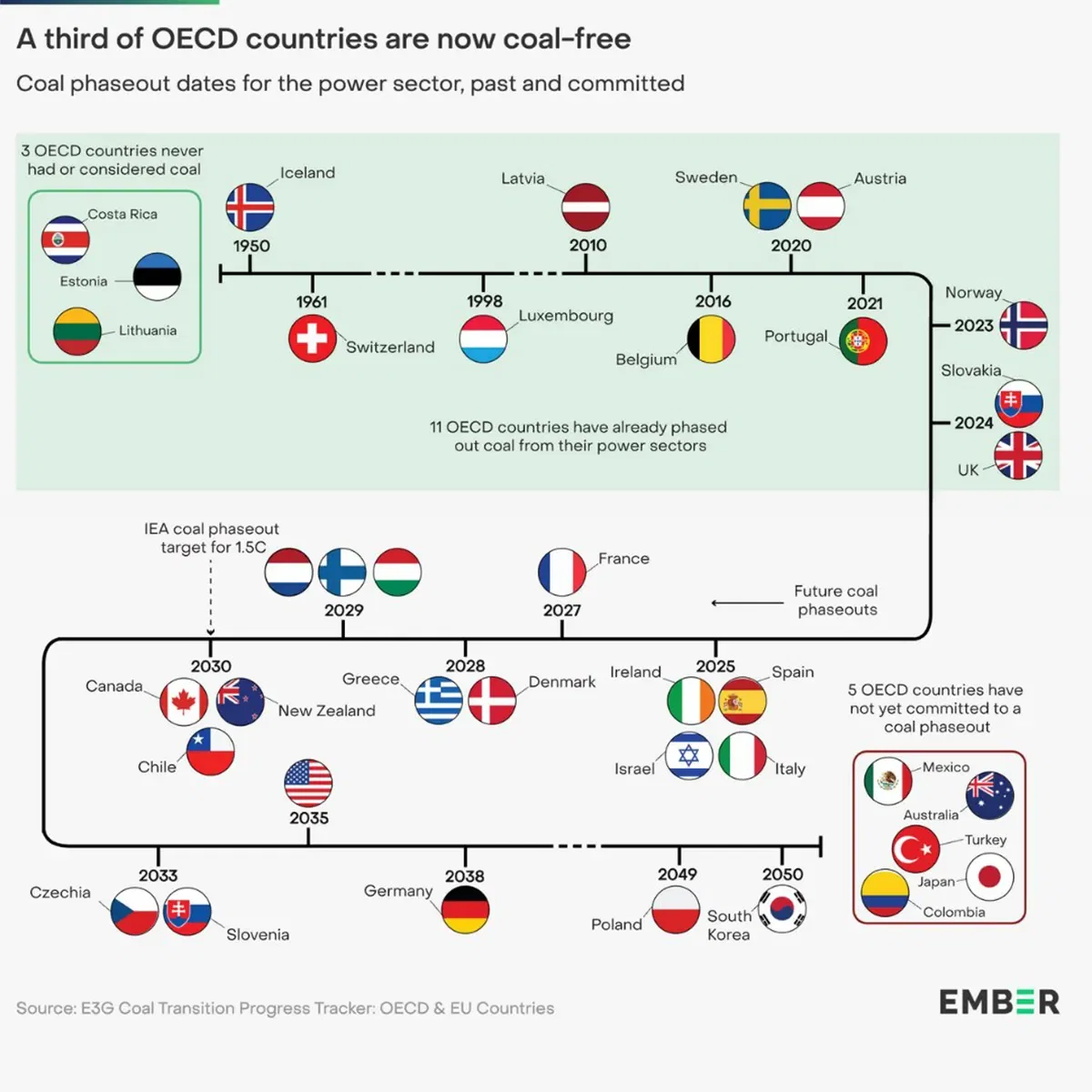Where Data Tells the Story
© Voronoi 2026. All rights reserved.

Almost three-quarters of the OECD is on track for a 2030 coal phase-out. As well as the 14 countries that are already coal-free, a further 13 countries have committed to phase out coal power by 2030. These include many EU countries, as well as Canada, Chile, Israel and New Zealand.
There are still 11 countries that have not yet committed to a 2030 coal phase-out, though coal is certain to continue to fall rapidly.
This is primarily because some of these countries do have near-2030 commitments. Slovenia and Czechia have committed to close all coal plants by 2033. The US has committed to a carbon-free power sector by 2035, and the NREL projected that the Inflation Reduction Act – implemented to help step up clean electricity – will bring unabated coal power to very low levels by 2030.
Secondly, some of these 11 countries have big plans for renewables, which should guarantee that coal continues to fall rapidly in these countries. Germany and Poland – the EU’s largest coal generators – have committed to huge increases in the share of renewables from 2023 to 2030; Germany from 32% to 80%, and Poland from 27% to 51%. Australia has not yet committed to phase out coal, but it has committed to increase renewables from 36% of its electricity in 2023 to 81% in 2030.
Thirdly, even the countries with the slowest progress are still planning a decline in coal. In Japan, the 2021 Sixth Strategic Energy Plan for 2030 proposes to cut coal generation from 32% of Japan’s electricity in 2023 to 19% by 2030. Korea’s new energy plan targets to halve coal from 33% in 2023 to 17% in 2030.
Although Türkiye currently has no commitment to phase out coal, it does plan to increase the share of solar and wind in electricity generation from 16% in 2023 to over 23% by 2030 and 34% by 2035.